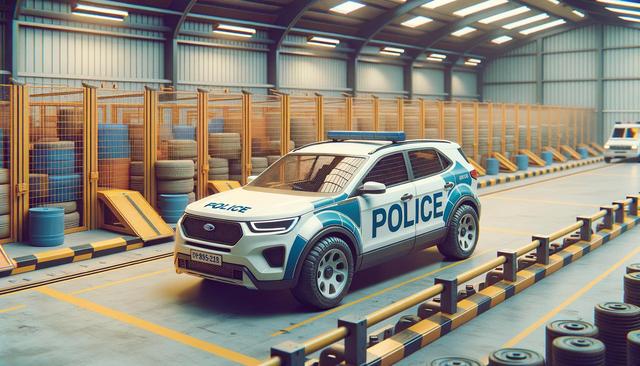What Are Police Impound Cars?
Police impound cars are vehicles that have been seized, towed, or otherwise taken into custody by law enforcement agencies. These cars may be involved in crimes, abandoned on public property, or towed due to parking violations or unpaid tickets. Once the legal holding period expires and the rightful owner fails to reclaim the vehicle, it can be sold at auction, providing the public with access to a wide range of cars at potentially lower prices.
There are several reasons why a vehicle might end up in a police impound lot, including:
- Illegal parking or abandonment
- Evidence in a criminal investigation
- Unpaid tickets or traffic violations
- Driving without a license or insurance
While the condition of these vehicles can vary, many are still operational and worth considering for buyers looking for budget-friendly options.
How to Find Police Impound Car Auctions
Police impound car auctions are often open to the public and can be found through various local government or law enforcement websites. These auctions may be held in person or online, depending on the jurisdiction. Understanding where to look is the first step in taking advantage of these public sales.
Some common sources to locate police impound car auctions include:
- City or county police department websites
- Local government auction listings
- Online public auction platforms
- Bulletin boards at impound lots
Before attending or participating in an auction, it’s important to research the rules and procedures. Some auctions require pre-registration or a deposit, while others may allow on-the-spot bidding. Checking the auction schedule and reviewing the vehicle inventory in advance can also help you make informed decisions.
What to Expect When Bidding
Bidding at a police impound auction can be both exciting and fast-paced. Whether in person or online, the process typically starts with a viewing period where prospective buyers can inspect the vehicles. However, vehicles are usually sold “as-is,” meaning there are no guarantees or warranties provided, and buyers assume all risks.
Key tips for participating in a successful auction include:
- Arriving early to inspect the vehicles
- Setting a budget and sticking to it
- Bringing a mechanic if possible
- Understanding the payment and pickup terms
Knowing the vehicle’s value ahead of time can help you avoid overbidding. It’s also essential to factor in any additional costs, such as towing fees, registration, or repairs that may be required after purchase.
Pros and Cons of Buying Impounded Vehicles
Like any purchase, buying a police impound car has its advantages and disadvantages. While it can be a cost-effective option, it also comes with some risks that buyers should be prepared to manage. Weighing these pros and cons can help determine whether this route aligns with your needs and expectations.
Potential benefits include:
- Lower purchase prices compared to dealership vehicles
- Wide variety of makes and models
- Opportunities for resale or personal use
However, challenges may involve:
- Limited information on vehicle history
- No test drives before bidding
- Possible need for repairs or maintenance
- Additional paperwork to establish ownership
Due diligence is essential. If you’re comfortable with a little risk and have the ability to assess a vehicle’s condition, impound auctions can be a worthwhile venture.
Tips for First-Time Buyers
For those new to buying from police impound auctions, the process may seem intimidating at first. However, preparation and research can go a long way in ensuring a smooth experience. Understanding the logistics and legal considerations involved in purchasing and registering an impounded car is key.
Here are some helpful tips:
- Read all auction terms carefully before participating
- Bring the necessary documentation for registration
- Ask about any outstanding fees or liens on the vehicle
- Be realistic about repair costs and potential delays
Consider starting with lower-value vehicles to gain experience before committing to higher bids. Over time, as you become more familiar with the auction environment, you’ll be better positioned to identify good deals and avoid common pitfalls.


